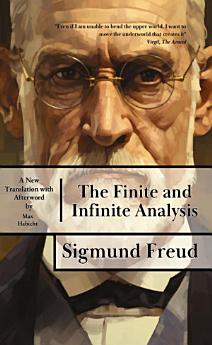Finite and Infinite Analysis
Mai 2024 · The Collected Complete Works of Sigmund Freud Buch 7 · Continental Press
E-Book
100
Seiten
family_home
Zulässig
info
reportBewertungen und Rezensionen werden nicht geprüft Weitere Informationen
Über dieses E-Book
The Finite and the Infinite Analysis (1937) is one of Sigmund Freud’s lesser-known but profoundly significant works, written late in his career as he reflected on the limits and possibilities of psychoanalytic practice. In this essay, Freud grapples with the question of whether psychoanalysis can ever achieve a "complete" understanding of the human psyche or if the process of analysis is inherently infinite, always uncovering deeper layers of the unconscious. This work marks a pivotal moment in Freud’s intellectual journey, as he confronts the boundaries of his own theories and the complexities of the human mind. Freud begins by examining the practical challenges of psychoanalysis, acknowledging that the therapeutic process often encounters resistance, both from the patient and from the unconscious itself. He questions whether it is possible to fully resolve the conflicts and traumas buried within the psyche or if analysis must remain an ongoing, open-ended endeavor. This tension between the finite goals of therapy and the infinite depths of the unconscious becomes the central theme of the essay. At the heart of The Finite and the Infinite Analysis is Freud’s recognition of the limitations of psychoanalytic technique. He reflects on the ways in which the unconscious continually reveals new material, suggesting that the psyche is not a static entity but a dynamic, ever-evolving system. This leads him to consider whether the aim of analysis should be to achieve a definitive resolution or to foster an ongoing process of self-discovery and adaptation.
Autoren-Profil
Sigmund Freud (1856-1939) was an Austrian neurologist and the founder of psychoanalysis, a groundbreaking approach to understanding the human psyche. Freud introduced concepts such as the unconscious mind, repression, and the tripartite structure of the psyche, which includes the id, ego, and superego. His work, including seminal texts like The Interpretation of Dreams and Beyond the Pleasure Principle, emphasized the role of unconscious drives and childhood experiences in shaping behavior and personality. Freuds theories on sexuality, defense mechanisms, and dream analysis challenged societal norms and profoundly altered the field of psychology, influencing literature, art, and philosophy. Though controversial, his contributions laid the foundation for modern psychotherapy and continue to spark debates and inspire new approaches to understanding human behavior and mental processes.
Dieses E-Book bewerten
Deine Meinung ist gefragt!
Informationen zum Lesen
Smartphones und Tablets
Nachdem du die Google Play Bücher App für Android und iPad/iPhone installiert hast, wird diese automatisch mit deinem Konto synchronisiert, sodass du auch unterwegs online und offline lesen kannst.
Laptops und Computer
Im Webbrowser auf deinem Computer kannst du dir Hörbucher anhören, die du bei Google Play gekauft hast.
E-Reader und andere Geräte
Wenn du Bücher auf E-Ink-Geräten lesen möchtest, beispielsweise auf einem Kobo eReader, lade eine Datei herunter und übertrage sie auf dein Gerät. Eine ausführliche Anleitung zum Übertragen der Dateien auf unterstützte E-Reader findest du in der Hilfe.











